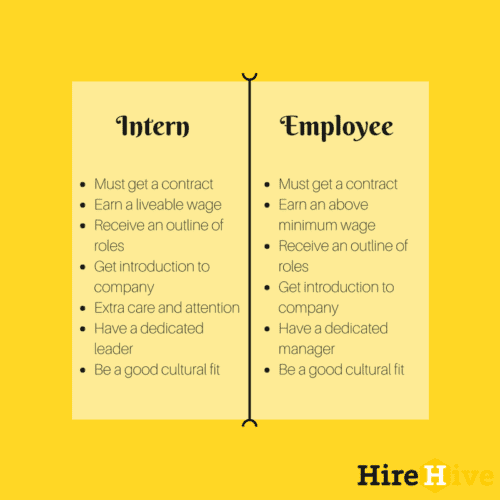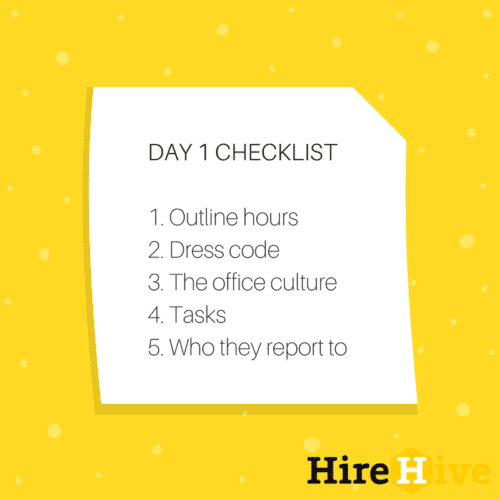recruiting-strategy
Hiring interns for the summer: best practice


Rachel Hill
HireHive

Rachel Hill
HireHive


Rachel Hill
HireHive

Rachel Hill
HireHive
Summer is a particularly busy time for B2C companies with customers spending more money than they usually would. To deal with the summer rush, some companies take to hiring interns. While the internship model can benefit companies, it can also benefit students who are free and looking for relevant and practical work experience.
However, internships often get a bad rep from both sides with employers complaining of unproductive employees and interns complaining about exploitative companies. Nobody is perfect, but how can you ensure the internship experience is beneficial for you and the potential intern(s) ?

Before hiring interns, ask yourself why you need one in the first place as opposed to a full-time employee. Is it because you only need someone for a short period of time? Is it to cut costs? Is it because you want to see how a candidate performs before providing a full time position?
You should know that there is very little difference between hiring interns and hiring an employee. Both must be given contracts, a liveable wage, an outline of their roles and a detailed introduction to the company. While employees often have long term contracts and better pay, interns are often on shorter contracts with less pay before sometimes becoming full time employees. If you choose to hire summer interns, ensure you establish the period of interning at the beginning.
It is worth keeping in mind though, that interns have less experience than seasoned employees. For many, it may be their first corporate role. This means they may need some extra care and attention at the beginning. Nonetheless, you should still look for the same characteristics and traits as you would from regular employees.To facilitate interns' lack of experience, ensure you have a patient and dedicated leader in place.

We all know from research that hiring an employee that is a bad cultural fit is bad for business. The same can be said when hiring interns. A lazy, unproductive intern can bring down the morale of an entire team. Choosing the right intern will ensure fresh perspectives and might even be your next graduate recruit.
When writing your job description, include the tasks the intern will do along with the relevant skills they will need. This ensures you are being transparent about tasks at the beginning and targeting the right candidates. When you move to the interviewing stage, take the intern’s personality and overall skill set into account. Too often, companies focus on colleges attended and grades obtained, but raw enthusiasm and drive are just as important.
Once you have hired an intern, or team of interns, ensure their goals are clear from the beginning (i.e. why you hired them in the first place). If you can’t establish these, the internship won’t be successful for either party. On day 1, you need to outline their hours, dress code, the office culture, their tasks and who they report to. If you find that certain interns have become more autonomous, you can loosen the reins and check in less often.

On the other hand, if you find an intern has become lazy or negligent, you need to address the issue immediately. It might only take a 5 minute chat to solve the issue at hand. Just because they are only with your company for a short period of time does not mean you should treat them completely different from other employees. Intervention can also help give interns a sense of structure and the real working world.
Performance reviews shouldn’t just apply at the end of an internship, but throughout. While it is necessary at the beginning to have weekly review meetings, these can be narrowed down to monthly over time. These reviews should constantly be tied back to goals and business KPIs.
Reviews ensure that you are making the best use of your additional help, and interns know that their work is valued.
Interns often complain that their tasks weren’t meaningful, so ensure that they don’t feel this way by giving regular reviews. The worst thing that can happen is an intern leaves your company feeling that their time was wasted, spreading a bad reputation about your company.
Sign up for our monthly newsletter to receive the latest news, insights, and exclusive resources.

“HireHive makes the team a lot more productive. We’d be lost without it. Team Leaders can do it all themselves if needed or jump in at the right time and know exactly where everything is and what’s happening.”

Hilary Dempsey Head of HR at Life Credit union